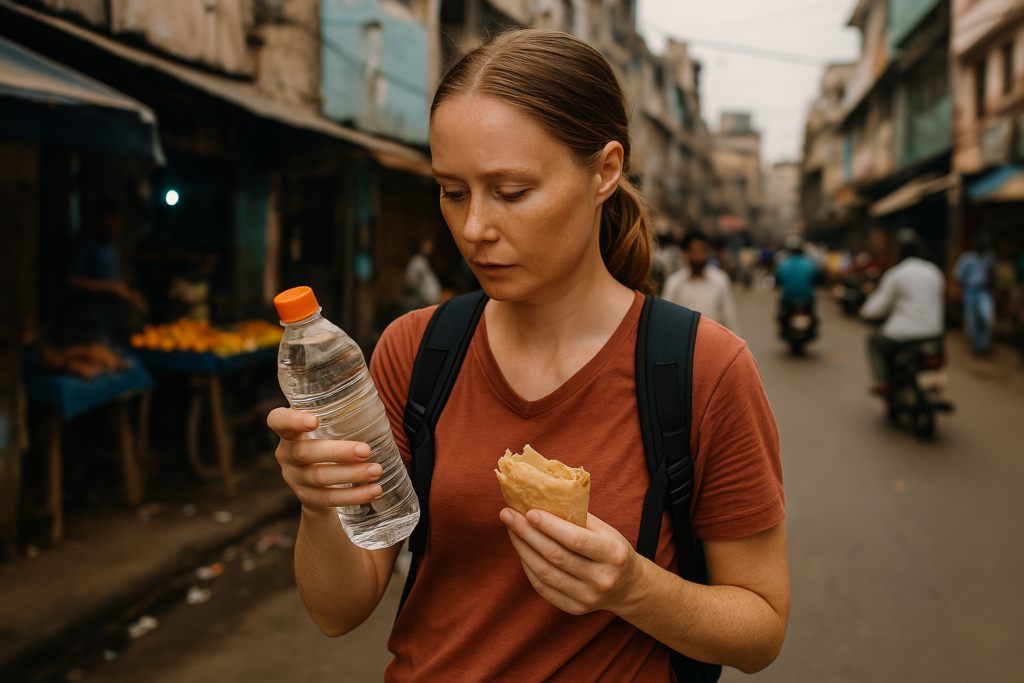 Travel Advice
Travel Advice
Traveller’s Diarrhoea – What You Need to Know Before You Travel
Traveller’s diarrhoea is one of the most common medical problems affecting international travellers. If you’re planning a trip abroad, it’s essential to understand the causes, symptoms, and treatments — so you can stay healthy and make the most of your journey.
🚨 What Causes Traveller’s Diarrhoea?
Traveller’s diarrhoea is usually caused by eating or drinking food contaminated with bacteria, viruses, or parasites. Common causes include:
-
Undercooked meat (especially chicken or seafood)
-
Unwashed salads or fruits
-
Contaminated drinking water or ice
-
Poor hand hygiene
Street food can be a highlight of any trip, but food that’s been sitting out too long or isn’t properly cooked can be risky. Always look for busy, clean stalls and freshly prepared food.
🤒 Symptoms to Watch For
Symptoms usually appear suddenly and include:
-
Frequent loose or watery stools
-
Stomach cramps and pain
-
Nausea and vomiting
-
Fever
-
Dehydration
Most cases are mild and last just a few days. However, symptoms can occasionally continue after returning home and may require further tests or treatment.
🩺 When to Seek Medical Help
You should seek medical attention if:
-
You have blood in your stool
-
You can’t keep fluids down
-
Symptoms last more than 5–7 days
-
You experience severe dehydration or high fever
In severe cases, especially when travelling abroad, you may require urgent medical care. SkyCare provides Medical Repatriation and Air Ambulance Services if needed to bring patients safely home.
💊 Treatment
For most travellers, hydration is the key. Drink plenty of bottled water and consider using oral rehydration salts to replace lost fluids and electrolytes.
-
Eat bland foods like rice, bread, or bananas once you feel able.
-
Over-the-counter medicines like loperamide (Imodium®) can help reduce diarrhoea if needed.
-
Avoid anti-diarrhoea tablets if you have blood in your stools or a high fever.
In some cases, particularly with prolonged symptoms, your doctor may recommend antibiotics or further stool tests after you return to the UK.
🛡️ How to Prevent Traveller’s Diarrhoea
Reduce your risk by:
-
Washing hands regularly or using hand sanitiser
-
Drinking only bottled or boiled water
-
Avoiding ice in drinks
-
Eating food that is freshly cooked and piping hot
-
Peeling your own fruits
-
Avoiding undercooked meats and unpasteurised dairy products
Before you travel, check if you need any travel vaccinations and stay informed about local health risks.
✈️ Travel Safe with SkyCare
At SkyCare, we support travellers around the world with professional Medical Repatriation and Air Ambulance Services.
If you or a loved one fall ill abroad, our experienced team is ready to assist 24/7 — bringing care to the skies, where every journey matters.
Stay safe, travel smart, and enjoy your trip!
Reviewed by Dr Lee Collier – SkyCare Repatriation on 14/04/2025 | next review due 14/04/2027 | published on 14/04/2025

 SkyCare
SkyCare 